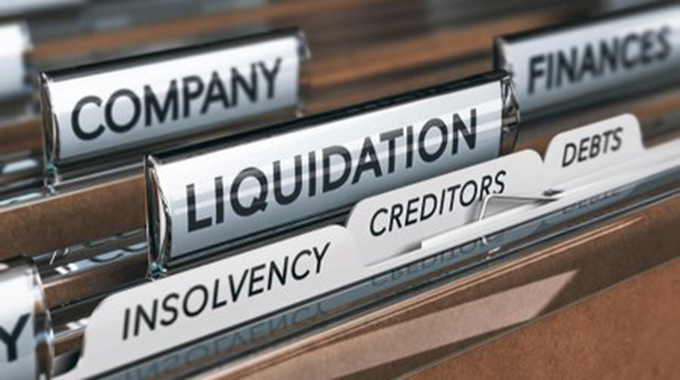
Godknows Hofisi
Introduction
In simple terms, liquidation refers to the winding up of an insolvent debtor entity (juristic person) or an insolvent estate of a natural person.
It usually involves the sale of the insolvent debtor’s assets, payment of liquidation costs and payment (usually in part) of the proven creditors’ claims.
In Zimbabwe liquidations are governed by the Insolvency Act (Chapter 6:07) of 2018 (or “the Act”).
In terms sections 4-12 in Part II of the Act, an insolvent debtor may be liquidated in terms of:
An application by the debtor for liquidation of the estate of a natural person or partnership,
An application by the debtor for the liquidation of a trust, company, private business corporation, co-operatives or other debtor,
An application by a creditor for the liquidation of debtor’s estate in terms of section 6,
Liquidation of partnership estate,
Voluntary liquidation of insolvent debtor by resolution,
Voluntary liquidation of solvent company.
This article focusses on the first as well as subsequent special meetings of creditors in a liquidation.
First meeting of creditors Section 50 of the Act applies.
A creditor is a person (natural or juristic) who is owed money by a debtor, in this case an insolvent debtor.
In very simple terms an insolvent debtor (natural or juristic) is one who is unable to pay his or her liabilities as they fall due or whose liabilities exceed assets.
Section 50(1) provides that a liquidator appointed in terms of section 41 must by notice in the (Government) Gazette and in a newspaper widely circulated in the district in which the business is carried on, and after consultation with the Master (of the High Court) regarding the time and place of the meeting, convene a first meeting of creditors to be held within 60 days of his or her appointment.
The notice of the meeting must state the time and place of the meeting and the matters that will be dealt with and must be published not less than 14 days before the date fixed for the meeting.
The liquidator must, at least 14 days before the date determined in the Gazette for the holding of the first meeting of creditors, send by liquidator’s notice to every creditor whose name and address are known to him or her, which he or she can reasonably obtain:
A copy of the notice of the meeting,
A copy of the report on the affairs of the debtor and business transactions entered into before the liquidation, as contemplated in section 46(1),
A copy of the inventory report contemplated in section 46(2), not 42(6).
A copy of the valuation contemplated in section 42(13), not 42(11).
A written draft of any resolution or directive which in his or her opinion should be taken or given at that first meeting,
A copy of the notice of the first meeting contemplated in section 50(2).
A copy of any composition (arrangement with creditors) which is to be considered.
In terms of section 50(4) the liquidator must lodge with the Master or Magistrate who is to preside at the meeting on or before the second working day before the date determined for the meeting of creditors:
A copy of the report on the affairs of the debtor and business transactions entered into before the liquidation, as contemplated in section 46(1),
A copy of the documents contemplated in section 50(3)(c), (d), (e), being a copy of the inventory report as per section 46(2) (not 42(6)), a copy of the valuation contemplated in 42(13) (not 42(11) and a written draft of any resolution or direction which in his or her opinion should be taken or given at that first meeting.
In terms of section 50(4) the first meeting may deal with the following:
Proof of claims by creditors,
Consideration of the report of the liquidator,
Nomination and appointment of one or more co-liquidators,
Consideration of a composition (arrangement with the creditors),
Giving directives to the liquidator on matters affecting the liquidation.
Special meetings of creditors
Section 51 applies.
The liquidator may at any time and must, if requested by at least 25 percent of creditors in value, who have proved claims, or at the request of the Master, or whenever a composition has to be considered, convene a special meeting of creditors.
A special meeting of creditors may deal with:
Proof of claims,
Examination of any person in terms of the Act,
Consideration of composition,
Directives to the liquidator with regard to any mater affecting the liquidation.
This simplified article is for general information purposes only and does not constitute the writer’s professional advice.
Godknows Hofisi, LLB(UNISA), B.Acc(UZ), CA(Z), MBA(EBS,UK) is a legal practitioner / conveyancer with a local law firm, chartered accountant, insolvency practitioner, registered tax accountant, consultant in deal structuring, business management and tax and is an experienced director including as chairperson. He writes in his personal capacity. He can be contacted on +263 772 246 900 or [email protected].
